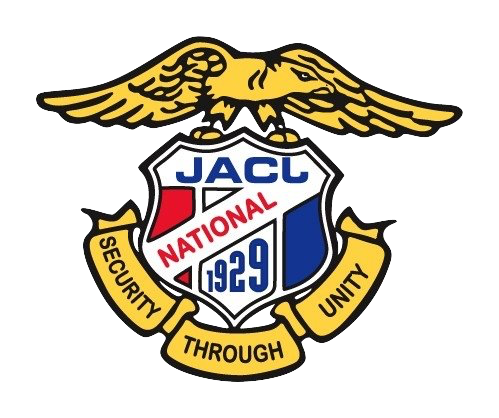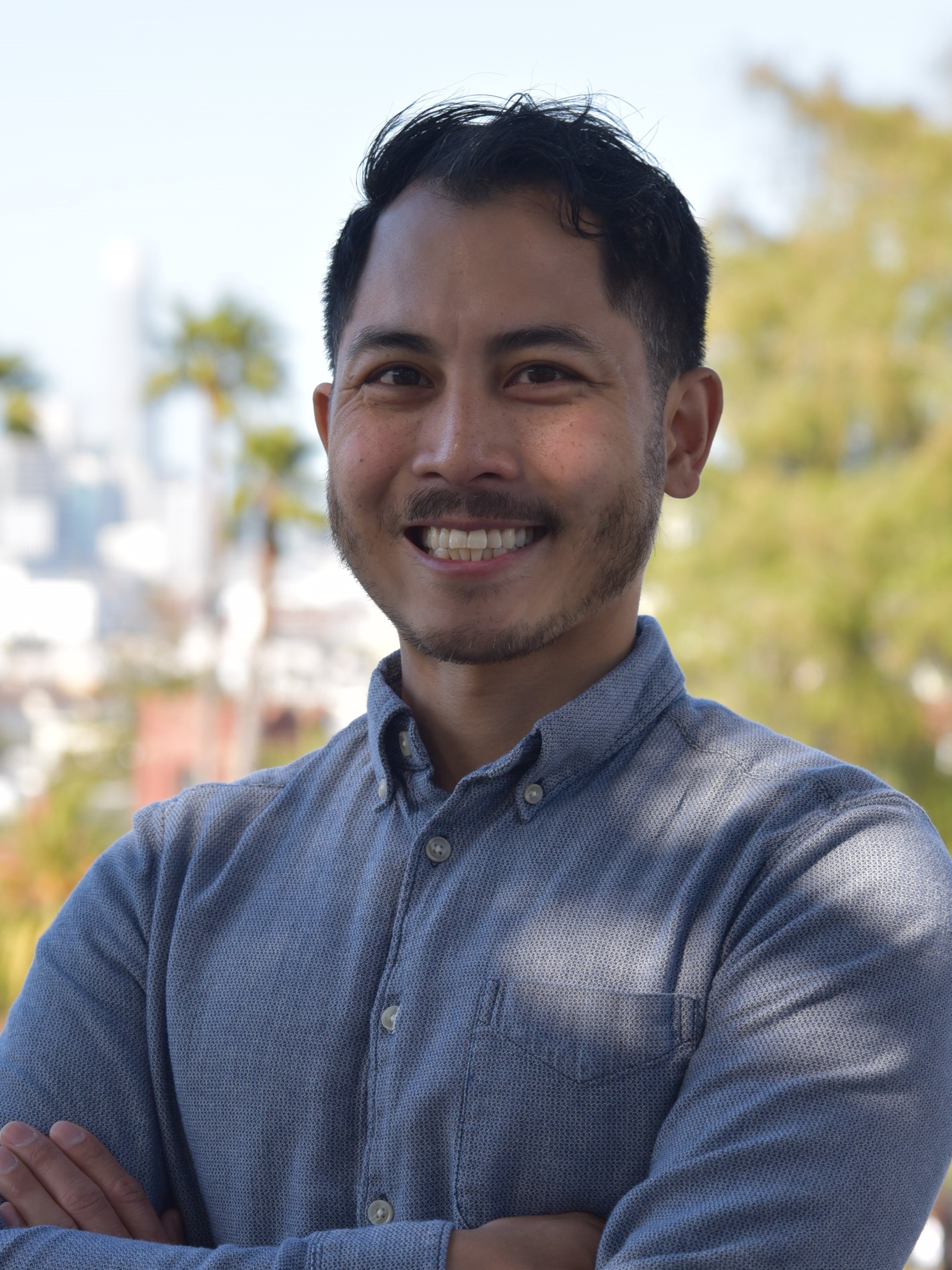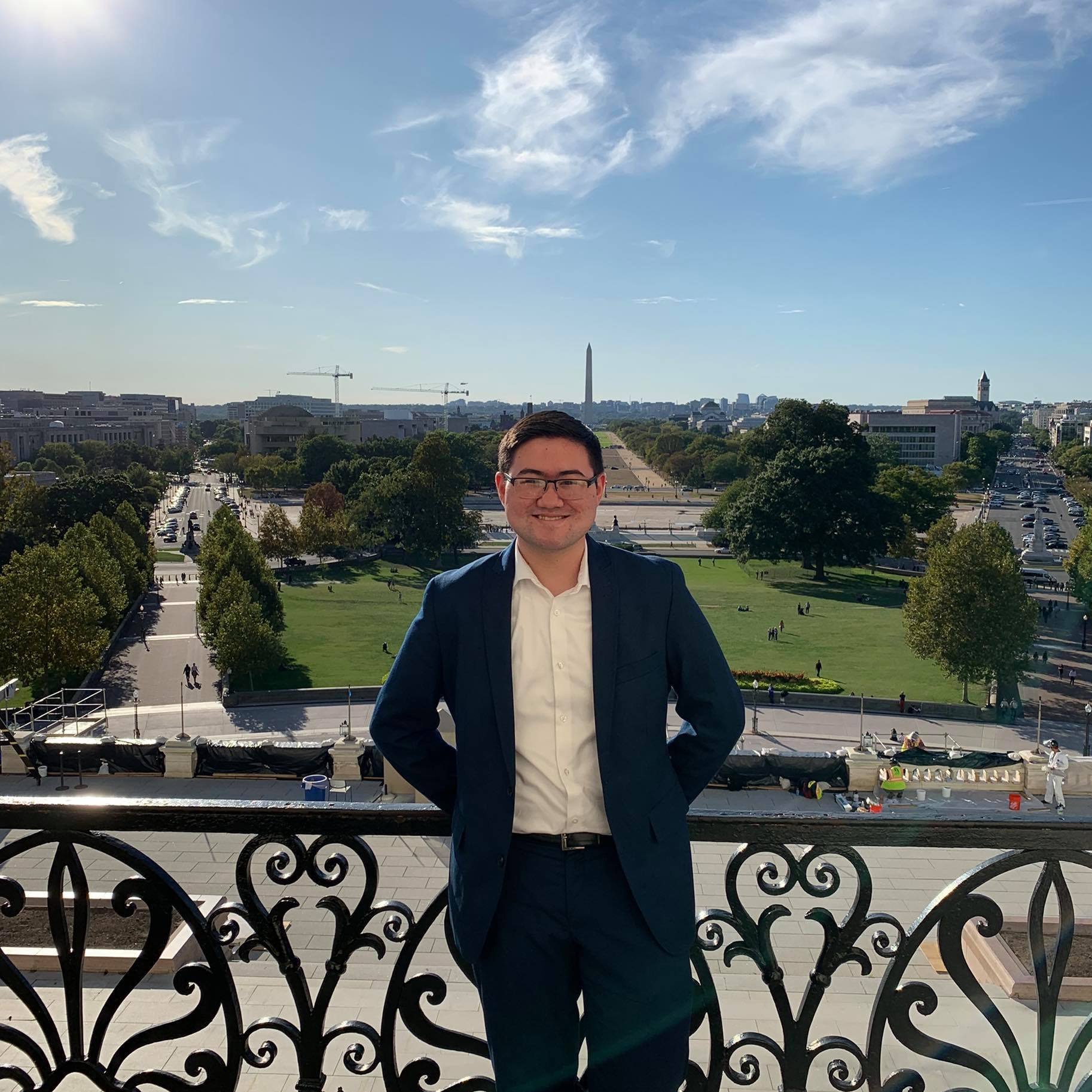Civil Liberties in Times of Crisis: The Japanese Americans Experience
2022 JACL NEH Landmarks | Program Details | Application Details | Program Staff, Faculty, and Speakers | Housing/FAQs| Apply!
Program Staff, Faculty, and Speakers
Program Co-Directors
Phil Ozaki
MBA, is the Program Director for Membership and Development at JACL. He has been speaking to audiences about the WWII incarceration for 20 years. His grandfather was forced to the Santa Anita detention center, then the Jerome, Arkansas concentration camp, and fought in the 442nd Regimental Combat Team (RCT) all Japanese American unit. Since his grandpa was an educator and Chicago’s first Asian American high school principal, Mr. Ozaki passionately focuses on the growth of education programs about the Japanese American experience. the incarceration. Mr. Ozaki was one of the main lobbyists for the 2010 Congressional Gold Medal legislation that honored the 442nd RCT and other Japanese American units. For the Landmarks workshop, Mr. Ozaki will develop the workshop’s detailed program of study, handle communication with faculty and lecturers, serve as the main point person during the workshop, will handle travel and facility arrangements, and create videos and photos from the program.
Matthew Weisbly
Matthew Weisbly is the Education and Communications Coordinator for the JACL. He is a graduate of the University of Southern California with a degree in Japanese and Japanese American history, writing his thesis on demographic data and oral histories of Japanese American WWII veterans. On the JACL National Education Committee, he has worked to help update the JACL curriculum guide and plan teacher training workshops. He has co-planned recent conferences including Tadaima: A Virtual Community Pilgrimage and the Japanese American Confinement Sites Consortium Education Conference. For the Landmarks workshop, Mr. Weisbly will communicate with applicants and participation, manage on-site logistics, work with a contractor to develop the project webpage, assist in facilitation, serve as a local liaison, and develop an evaluation plan.
Program Faculty
Sharon R. Ishii-Jordan
Sharon R. Ishii-Jordan, Ph.D., is Professor Emerita of Education and a former Associate Dean of the College of Arts and Sciences at Creighton University. Currently retired, she co-facilitated JACL’s 2016 Landmark workshops and co-developed JACL’s one-day teacher training workshops which JACL has used for over 25 years. Dr. Ishii-Jordan has presented numerous workshops on the incarceration experience at locations such as the Illinois Holocaust Museum, Houston Holocaust Museum, Bryn Mawr College, and Northeastern Illinois University. For the Landmarks workshop, Dr. Ishii-Jordan will serve as the Education Expert and will provide ongoing support for participants to develop their group lesson plans. In addition, she will co-lecture on Japanese American history, military service, contemporary media portrayals, and utilizing primary resources.
Christine Munteanu
Christine Munteanu, M. Ed, is an Assistant Director of Multicultural Student Affairs at Northwestern University, where she provides advising, advocacy, and programming for students of color, LGBTQIA+ students, and Native and Indigenous students. Previously, she worked at the JACL for 7 years, where she planned and implemented JACL’s education and leadership programs. She has founded and directed a 4-day educational trip for youth to visit Little Tokyo and Manzanar and a 4-week high school leadership program examining parallels between the WWII incarceration and the post-9/11 Muslim American experience. She is a member of JACL Chicago's "Our Story" speaker's bureau, which provides classroom presentations on the Japanese American incarceration for middle school and high school audiences. She holds a Master of Education from the University of Illinois at Chicago. For the Landmarks workshops, Ms. Munteanu will co-facilitate lectures on history and contemporary media portrayals.
Susan H. Kamei
Susan H. Kamei, J.D., is the managing director of the University of Southern California (USC) Spatial Sciences Institute and a professor teaching in the Dornsife College of Letters, Arts and Sciences about the constitutional, historical, and political issues of the Japanese American incarceration and the importance of those issues today. She is a graduate of the University of California, Irvine with B.A. degrees in Russian and Linguistics, summa cum laude, and received her J.D. from the Georgetown University Law Center. From the time she was in law school in Washington, DC and while she practiced corporate law, Susan was a member of the legislative strategy team for the JACL in the successful passage of federal legislation that provided redress to Japanese Americans for their wartime incarceration. She has been recognized for her service in the redress campaign, which included volunteering as National Deputy Legal Counsel for the JACL Legislative Education Committee.
Speakers
*List of speakers is subject to change based on schedule/availability and status of the pandemic
Valerie Matsumoto, Ph.D., is the George and Sakaye Aratani Endowed Chair on the Japanese American Incarceration, Redress, and Community at the UCLA Department of History. She holds a B.A. from Arizona State University and a Ph.D. in History from Stanford University. Her book, Farming the Home Place, is widely regarded as a classic in Japanese and Asian American community studies. She returns to lecture on Art in the Camps.
Professor Lorraine K. Bannai serves as Director of the Fred T. Korematsu Center for Law and Equality and Professor of Lawyering Skills at Seattle University School of Law. While at Minami Tamaki LLP, she served on the legal team that successfully challenged Fred Korematsu’s World War II conviction for refusing to comply with orders that resulted in the forced removal of Japanese Americans from the West Coast. Professor Bannai has written and spoken widely on the wartime Japanese American incarceration and its present-day relevance including raising the warning of the incarceration in opposing provisions of the National Defense Authorization Act (NDAA) that permit the indefinite detention of individuals without due process. She has co-authored amicus briefs challenging those same NDAA provisions including in Trump v. Hawaii (the Muslim travel ban).
John Tateishi served as JACL’s Redress Chair from 1978 to 1985, setting the path for a decade-long campaign to achieve a government apology and monetary compensation for the unjust incarceration of Japanese Americans during WWII. Mr. Tateishi guided JACL’s campaign from an educational to a lobbying operation, focusing on the constitutional issues of the incarceration as a basis for the grassroots strategy. The Redress Movement was successfully concluded with the passage of the Civil Liberties Act of 1988, which provided an apology from the President and Congress and monetary compensation to the victims of incarcerations. New since the 2016 program, Mr. Tateishi will also discuss his newly published book Redress: The Inside Story of the Successful Campaign for Japanese American Reparations.
Mitchell T. Maki, Pd.D., is the President and CEO of the Go For Broke National Education Center in Los Angeles. Earning his Ph.D. in Social Work from USC, he published the book, Achieving the Impossible Dream: How Japanese Americans Obtained Redress.
Alan Nishio is retired from Califonia State University, Long Beach, after a career teaching in the Department of Asian and Asian American Studies and serving as the Associate Vice President of Student Services. Mr. Nishio was the founder and co-chair of the National Coalition of Redress/Reparations, an organization that played a significant role in the redress campaign. Mr. Nishio will once again lead participants through a historical tour of Little Tokyo.
The Manzanar Committee is dedicated to educating and raising public awareness about the incarceration and violation of civil rights of persons of Japanese ancestry during World War II, and to the continuing struggle of all peoples when Constitutional rights are in danger. Organizing pilgrimages to Manzanar since 1969, the committee will recommend and enlist living survivors from Manzanar and other camps as we draw closer to the workshop dates.
Dr. Patricia Biggs is a history expert on the Owens Valley and interpretive ranger at the NPS at Manzanar.
June Aochi Berk was a 10-year-old child living in Los Angeles at the outbreak of WWII. Ms. Berk and her family were temporarily incarcerated at the Santa Anita Racetrack prior to being incarcerated at the Rohwer incarceration camp in Arkansas. She is a docent at the JANM.
Min Tonai is a 96-year-old Nisei who lived in Los Angeles at the start of World War II. He was confined in Santa Anita Racetrack before being incarcerated at the Amache camp in Colorado. Ms. Berk and Mr. Tonai will once again conduct tours about the Santa Anita Assembly Center as it was used during World War II.
John Tateishi served as JACL’s Redress Chair from 1978 to 1985, setting the path for a decade-long campaign to achieve a government apology and monetary compensation for the unjust incarceration of Japanese Americans during WWII. Mr. Tateishi guided JACL’s campaign from an educational to a lobbying operation, focusing on the constitutional issues of the internment as a basis for the grassroots strategy. The Redress Movement was successfully concluded with the passage of the Civil Liberties Act of 1988, which provided an apology from the President and Congress and monetary compensation to the victims of incarcerations. New since the 2016 Landmark, Mr. Tateishi will discuss his newly published book Redress: The Inside Story of the Successful Campaign for Japanese American Reparations.
Jeanne Wakatsuki Houston is the author of the acclaimed memoir Farewell to Manzanar: A True Story of Japanese American Experience During and After World War II Internment. The novel has become required reading in many school curriculums.
Alan Nishio retired from California State University, Long Beach, after a career teaching in the Department of Asian and Asian American Studies and serving as the Associate Vice President of Student Services. Mr. Nishio was the founder and co-chair of the National Coalition of Redress/Reparations, an organization that played a significant role in the redress campaign. A leader in many Japanese American community organizations, Mr. Nishio will lead participants through a historical tour of Little Tokyo.





